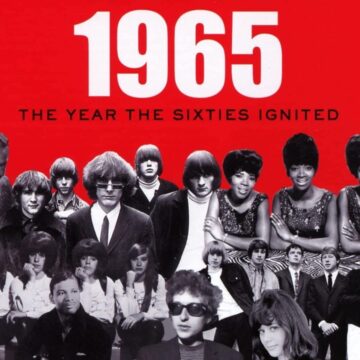My first meeting as a fresh-faced graduate was fairly embarrassing.
Assigned to the Horlicks account, (it tastes like warm vomit in case you have never tried a mug) I arrived at their Brentford offices in the Chairman’s chauffeur-driven Ford Granada. The hour-long meeting was a fairly pointless review of our weekly status, which that week was a status of stasis. Not a thing was going on, but there were still 6 of us in the room pretending that we all had proper jobs. Needing the loo as I always do after 30 minutes, I excused myself and popped into the Gents, which for some reason had no urinals. As I locked the door of trap 3, I suddenly realised I was in the Ladies. Every time I furtively peeked out, another person arrived forcing a retreat back into my safe space. Some twenty minutes later, I managed to escape without a citizen’s arrest from the security guard and was met with slightly bemused expressions by my colleague noticing the length of my absence. Not a good debut.
I have of course embarrassed myself many times in subsequent meetings: calling the client the wrong name, spilling coffee on their lap, bringing the wrong papers and one occasion saying something so stupid that thirty people in the boardroom of the FT looked at me as if I was muppet. (And I mean Animal rather than Kermit) For the last four months, my only challenge has been to manage a camera, audio, headphones whilst pretending that I am concentrating and not actually doing an Ocado shop on my iPhone.
Meetings used to be orchestrated dinner parties. Pads, pens and agendas needed to be lined up as if freshly laundered linen and the catering elegantly understated, ideally home cooked. This formality has been eviscerated by our new inter-connectivity and the ease of bringing groups of people together on a screen has changed for ever the nature of personal interaction, for better or worse. In May for example, Weight Watchers made many employees redundant on a mass Zoom call, prompting much criticism for their insensitivity. What is the etiquette for meetings now that our social foundations have been dislodged?
The first ‘official’ conference in history, for example, is agreed to be the 1814 Congress of Vienna, in which nations came to discuss the future of Europe post the French Revolution and Napoleonic Wars. The map of Europe was re-drawn over a 9 months period with significant implications for the next 100 years. When the Final Act was signed in June 1815, everyone from the 23 nations seemed to get some territorial advancement, except the French, whose fault it was after all, and the Swiss who stayed characteristically neutral.
But how did the royal and political leadership go about doing business?
Most of the grunt work was undertaken in salons by the diplomats and administrative flunkies of the different states, whilst their leaders had 8 months of effective idleness and like children in lockdown, demanded continual entertainment. Emperor Francis of Austria was not a natural host and was forced to uncork the fizz for the Tzar and Tzarina, the King of Prussia, three other kings, two crown princes, three Grand Duchesses, a number of other princes, the Duke of Cumberland and thirty-two minor German royalties. Each of these was accompanied by a train of chamberlains, aides-de-camp, masters of the horse, mistresses of the robes, equerries and adjutants. Every night, forty tables were laid for dinner at the Hoffburg Palace and 1400 horses were stabled.
Endless entertainment was provided from opera to banquets, with a constant supply of courtesans to boot. The banker Baron Arnfeld for instance threw a mega bash, with a concert, followed by a ball at which:
“The supper room was decorated with trees bearing ripe fruit from every country and though it was the middle of winter, the guests could pick cherries, peaches and apricots just as if they were in their own orchards.”
The purpose of the event was the advancement of the interests of individual countries so there was also much intrigue and gossip to try and find what the enemy was up to. Spies were ubiquitous. Baron Hager, head of the Austrian political police, recruited lots of volunteers from cash-strapped participating nations who could not pay their civil servants properly. They were no James Bonds and sadly much of what was gathered was completely useless. One report read:
“At the reception yesterday, Princess Eugen met Prince Khevenhuller and said to him ‘How are you Prince?’ The other replied. ‘How do you do your Excellency?’ There was no other conversation between them.”
The formalities of running international summits have changed somewhat since 1815. The principles of mixing a business meeting with socialising in pleasant surroundings have evolved however, rather than disappeared. Now all meetings are socially distanced. If they are in person, there may be a walk in the park or a chat in the garden. Even when the world re-opens, travel will be less prevalent. A daily schedule will probably be made up of a mixture of online functionality with in-person meetings when possible or a less regular office presence allows.
It is too early to understand the legacy of the last few months but clear that the initial effectiveness of Zoom/Teams has been replaced with a real craving for the return of ‘looking properly into their eyes when I make an offer they can’t refuse.’ The lack of physical proximity really represents the loss of nuance and emotional engagement. Meetings can be informal in the corridor and result in clear decision making. This is hard to replace.
The last months have taught us we can control where we want to be much more easily. A mix of quick and effective tech-enabled conversations will therefore be balanced alongside meetings as we used to know them. The difference may be that they are less elaborate, more informal and a lot shorter. But meetings around a table (with chairs two meters apart, no air-conditioning and lashings of hand sanitiser instead of biscuits) are irreplaceable because on Zoom you can wear no trousers, turn your camera off and watch the cricket whilst pretending to participate. This can’t become prevailing meeting behaviour.
We have told ourselves for years that we are ‘time-poor’ and now we have suddenly encountered a world lacking in the requirement for planes, small-talk and pointless conversations. Productivity should significantly increase, and we’ll have more time for the gym or our Spanish lessons at lunchtime. That would be nice.
Let’s hope for my sake the toilets are clearly marked.



